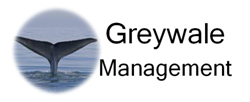This is a great quote that captures the real challenges of the last mile. Notice these challenges are not technical. To adapt a quote from Tip O'Neal (Speaker of the U.S. House (D-MA) circa 1980s) .... All local loops are local.
"The last mile. It sounds easy, it's only a mile, after all – but the problem is, there are just so darned many of them. Wireless or Fixed, the last mile is a massive, poorly-scaling problem that manifests itself with trucks, cherry pickers, tower climbers, backhoes, manholes, labor unions, vandals, and byzantine local regulations and by-laws. What's to love? But as wireless modulation schemes approach the Shannon-Hartley limit, the last mile will increasingly be where we see networks scale to meet the surging demand for mobile capacity. "
From a meeting notice of the Telecom Council of Silicon Valley.
Thursday, May 29, 2014
Wednesday, May 28, 2014
Wednesday, May 21, 2014
Open Internet + Fast Lane: Win for Consumers: Yet Trust but Verify
The recent move by the FCC is a win for Consumers. Yet, it's important the FCC "Trust but Verify".
Let's look at who will be the winners with the new FCC rules. The Consumers. Consumers will be the ultimate winners. First, the ISPs will get a fair return on their capital investments and will have the incentive to invest in more bandwidth. Which enables wave after wave of innovation. Second, those companies that pay for the fast lane will be those that consumers want and have a willingness to pay for. Netflix for example.
Keep in mind that the FCC proposal STILL prohibits the ISP for degrading traffic. Thus, those consumer applications in high demand get preferred treatment for the last 50 miles of the network (CDN Cache to home) and all other traffic gets treated the same it's always been.
The argument that small start up companies will be disadvantages is hollow. It will force entrepreneurs to innovate more to deliver a compelling product to consumers. It's just another market force to overcome. It will raise the bar and eliminate the marginal applications from clogging the network. This is no different than supermarket shelf space, a large barrier to entry. Coke and Pepsi dominate. Yet, look at all the upstart beverage companies that keep gaining shelf space. They're doing this by creating innovative products that consumers want. Not by whining to some federal regulator.
Why do industry pundits complain when Verizon, AT&T, Comcast, et al get fair return on their investment and look the other way when Google, Amazon, et al make $1000's per second?
Therefore, Consumers are the big winner here. A) More bandwidth B) More innovation and C) Less marginal applications.
Given that the FCC is charted, via the Congress, to protect consumers this new Fast Lane approach is a step in the right direct. However, the service providers must be careful not to over use this opportunity. Hence, the "Trust But Verify" mantra.
Telco's and Cableco's must know that the FCC will be closely monitoring this new ruling (assuming it gets implemented). They must adopt a high level of transparency to eliminate complaints from consumers. Remember, all it takes is some savvy lawyer to get a single citizen to file a complaint. To prevent endless litigation and legal costs that effectively eliminate the economic value to the "fast lane", service providers need to provide this high level of transparency to avoid an FCC mandated higher level of transparency.
SPs should freely adopt a level of transparency that satisfies consumers and their advocates and limits the level of proprietary disclosure to their competitors. They should ensure the "fast lane" does not, by design, effectively harm all other traffic. This can occur unwillingly using standard IETF IP Networking Protocols.
Therefore, I believe the "Open Internet + Fast Lane" approach is worth implementing. It ultimately benefits the consumer and it's fair to the service providers. Yet, and a "BIG YET", the FCC must Trust and Verify.
To comment on this or to discuss this in more detail please contact me at gwhelan@greywale.com
For additional articles and analysis please visit www.greywale.com
Subscribe to:
Posts (Atom)


